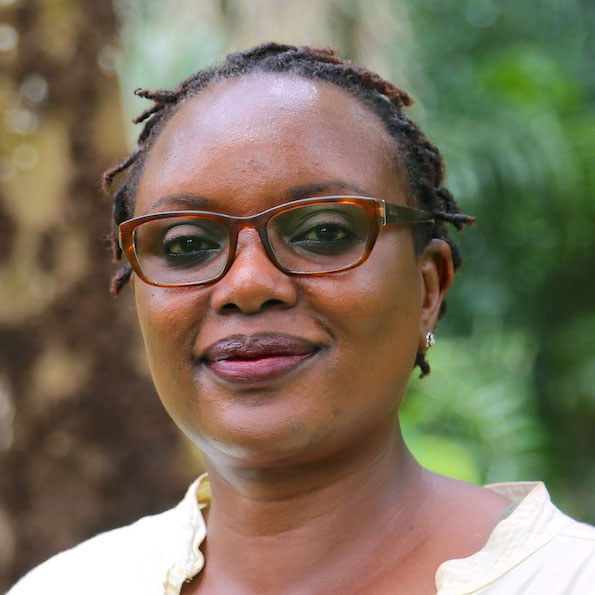East Africa is home to some of the world’s most diverse forests: Montane forests, which include some of the highest and oldest mountains in Africa; coastal forests; Miombo woodlands; tropical rain forests; and mangrove forests.
Like many forested areas across the globe, they are increasingly threatened by agricultural expansion and deforestation for fuelwood and timber purposes.
Although regional authorities, governments, NGOs and international organizations are working hard to protect these forests, without an accurate data set, there is no effective way to monitor the ecological, environmental, and social aspects of these forests.
Today, there are a number of observatories in East Africa monitoring forest activities. However, they lack precise country and regional level data that will help determine future strategies for protecting forests, reporting on countries’ obligations under the Paris Agreement, and evaluating the success of their initiatives under Reducing Emissions from Deforestation and Forest Degradation (REDD+) schemes.
ALL ABOUT THE DATA
Experts from the Center for International Forestry Research (CIFOR) are now working with the Regional Center for Mapping Resources for Development (RCMRD) and the French Agricultural Research Center for International Development (CIRAD) to lay the groundwork for a new regional observatory in East Africa.
Throughout the year, scientists will be conducting a comprehensive study to gather forestry data and assess the status of forests, REDD+ activities, institutional systems and monitoring capabilities across four East African countries (Kenya, Mozambique, Tanzania, Uganda).
This past February, a meeting was held in Nairobi, Kenya, with government representatives from the four countries to get the ball rolling. This new project will draw upon the experience of Observatoire des forêts d’Afrique Centrale (OFAC), a similar observatory now operating in Central Africa.
CIFOR scientist Paulo Cerutti, who helped establish OFAC, says the biggest advantage of having an observatory is that the information can be verified by the government.
“The data collected is more reliable because it focuses on a smaller scale, rather than on a global scale.”
Experts like Cerutti point out that global data sets, which are meant to compare larger regions, are not always effective when it comes to smaller regions because they can contain disparities.
GETTING ON THE SAME PAGE
Before the new observatory can become fully operational, all four countries need to have the same capacity and expertise level to effectively contribute to the platform. Currently, the countries have different levels of technical skills, scientific equipment and data collection methods. Even the terms used to describe the types of forests can vary across borders.
The availability of data is another key issue for experts to overcome. For example, in Uganda, information on taxes and revenues from non-timber forest products is not available because they are not formally traded. Meanwhile, in Mozambique, remote sensing data on forests is only available at the national level. In Tanzania, there is a lack of remote sensing data for forest monitoring.
The new observatory would offer the region a more compatible, streamlined data system that would unite the four countries. It would also provide a new avenue for regional collaboration.
“The Observatory will provide strong opportunities for synergies between the different focal points in each country and strengthen national capacity to monitor the forests,” says Alfred Gichu, head of the Climate Change Response Program at the Kenya Forest Service.
Countries in the region would be able to access a platform for sharing, exchanging and accessing data and information related to regional forests and REDD+. It would also provide a unified system for reporting on each country’s obligations to the United Nations Framework Convention on Climate Change (UNFCCC).
Stakeholders agree that regional cooperation gives everyone an opportunity to share their experiences and challenges and to build a stronger platform for the entire region.
“The Observatory will help bring East Africa together as a collective working group to give it a voice in high-level discussions,” says Joaquim Macuácua from Mozambique’s Department of Inventory of Forest Resources.
Experts point out that the current lack of coordination is resulting in different agencies producing the same data.
“The Observatory will help avoid this duplication of efforts across the region, and even within individual countries,” says Mugisa Micheal, the executive director of Uganda’s National Forestry Authority.
NEXT STEPS
The project will be carried out through March 2018. Upon its completion, a database and website for the regional forestry observatory will be developed. This data will be made available to the public through the Observatory.
Additionally, a thorough analysis of the state of forests and REDD+ activities across the four countries will be completed.
If these above objectives are successfully met, a five-year project will then be initiated to bring the Observatory to life as part of the project’s second phase.
This initiative is supported through the ReCaREDD project, which is led by the European Commission’s Joint Research Centre.
We want you to share Forests News content, which is licensed under Creative Commons Attribution-NonCommercial-ShareAlike 4.0 International (CC BY-NC-SA 4.0). This means you are free to redistribute our material for non-commercial purposes. All we ask is that you give Forests News appropriate credit and link to the original Forests News content, indicate if changes were made, and distribute your contributions under the same Creative Commons license. You must notify Forests News if you repost, reprint or reuse our materials by contacting forestsnews@cifor-icraf.org.
















